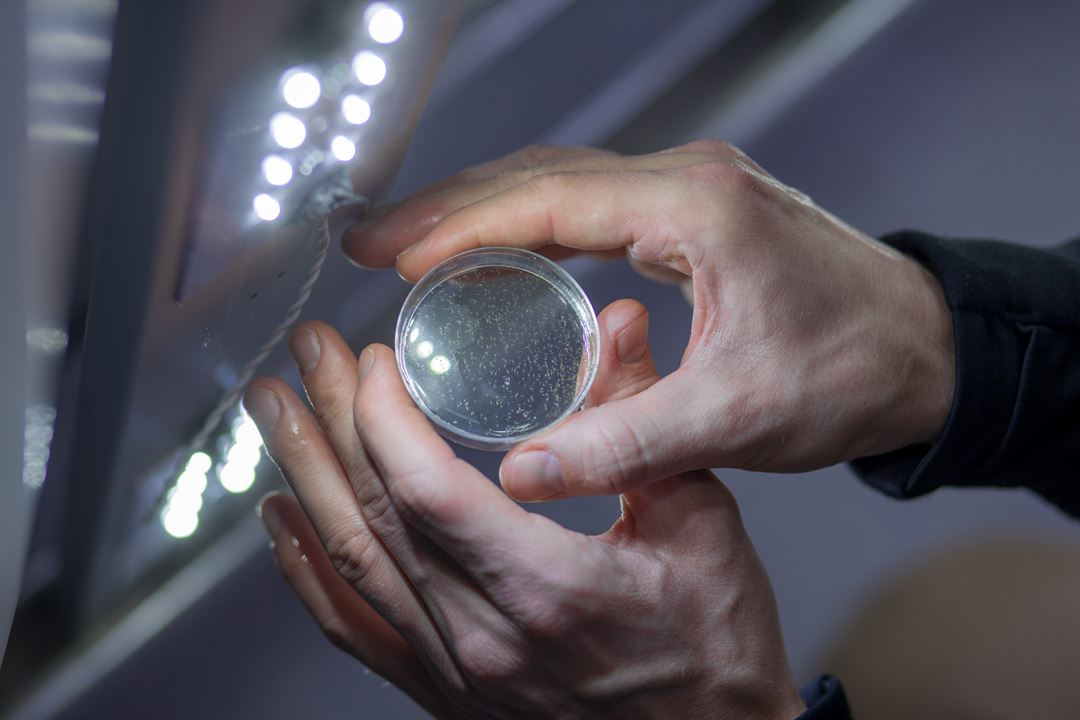Our start-up companies and the Sustainable Development Goals
GOAL 3 Good Health and Well-being: Tellu
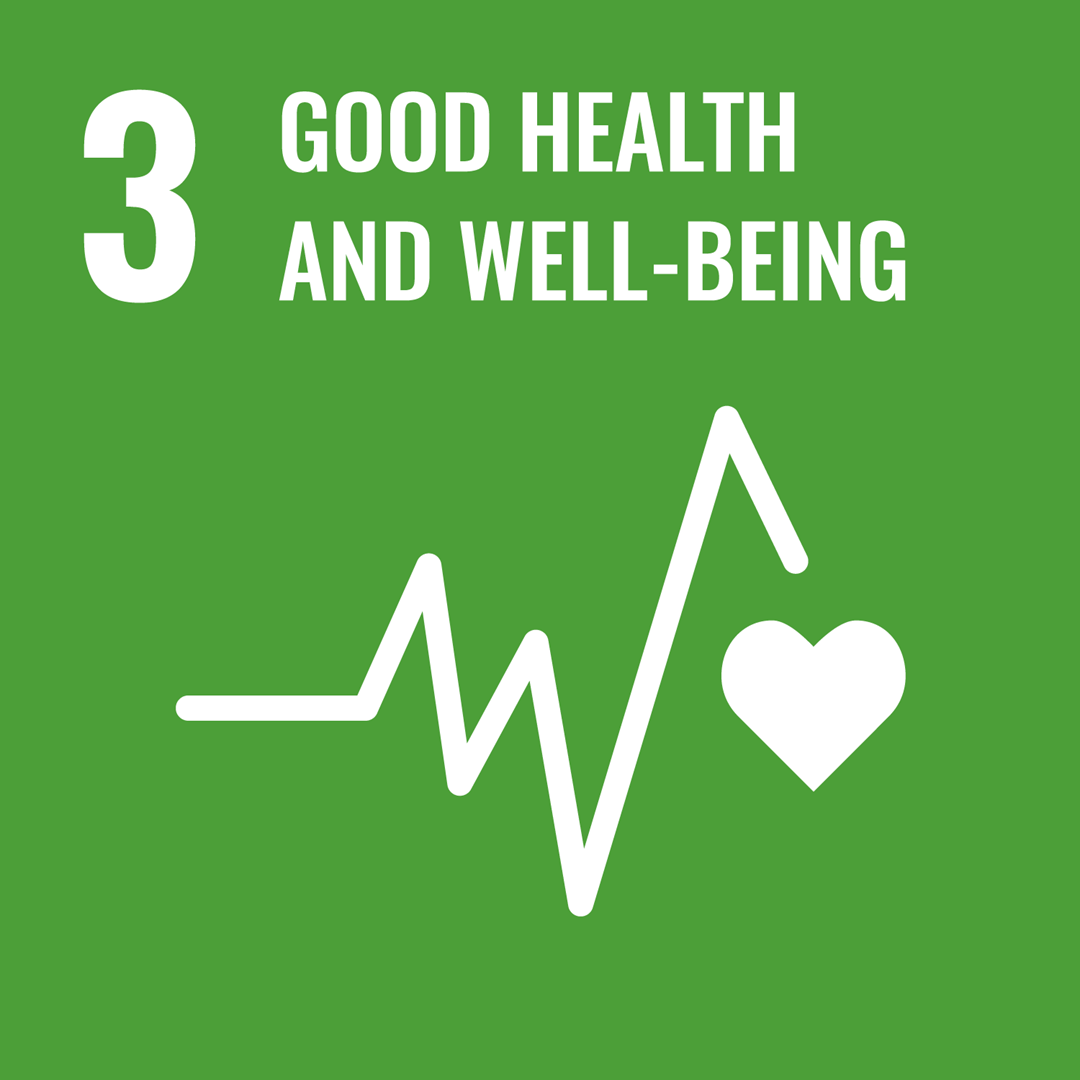
E-health for remote follow-up, etc.
Tellu is contributing to the development of the e-health market in the intersection between healthcare and technology. At the core of the company's activities lies a cloudbased platform that serves as an integration layer between various third-party or self-developed services, sensors, professional systems in home services, alarm services and patient records. The cloud solution is based on open standards, and it is possible to integrate advanced medical equipment, which opens the door to, for example, remote medical follow-up and 'hospital at home' solutions in a safe and proper manner.
Impact for clients, users and society
Taking care of people is Tellu's core mission. The company's solutions make it easier and safer to take good care of people in vulnerable phases of their lives. Research into the implementation of the company's solutions shows a clear increase in the quality of care that can be given to the users, and at the same time significant savings for clients and improved working conditions for employees. For society, the large-scale introduction of the type of solutions Tellu delivers will provide big savings and enable society to deliver better services with fewer resources.
Application and scalability
Following the merger with Telenor E-health, Tellu has budgeted for a turnover of NOK 77 million in 2020 and they have taken a position in the home market that makes rapid scaling in new markets possible. The company's solutions have been noticed in several EU countries, and as a pure software-as-a-service (SaaS) provider it will be possible to scale the business rapidly, alone or together with local partners.

GOAL 3 Good Health and Well-being: Minuendo

Intelligent hearing protection
Minuendo is developing intelligent hearing protection based on technology from SINTEF. Minuendo's solution is the first of its kind in the world, which protects hearing without degrading the sound quality. This product will notify the user of dangerous noise levels and prevent hearing damage, as well as reproduce sound in environments with varying background noise levels. Minuendo's first product was launched in 2020 and is an earplug for musicians and concert participants with stepless variable attenuation between 7-25dB. The earplug includes a tuneable high-fidelity acoustic filter yielding natural sound reproduction at any attenuation level.
Impact for clients, users and society
According to the European Commission, hearing loss is the most serious occupational work-related injury in Europe. The hearing protection from Minuendo aims to reduce the number of people developing hearing damage at work.
Application and scalability
High noise levels and hearing damage are a problem for many occupational groups, including the music and construction industries. Minuendo's products will, therefore, be important for many different industries and contribute to better hearing protection.
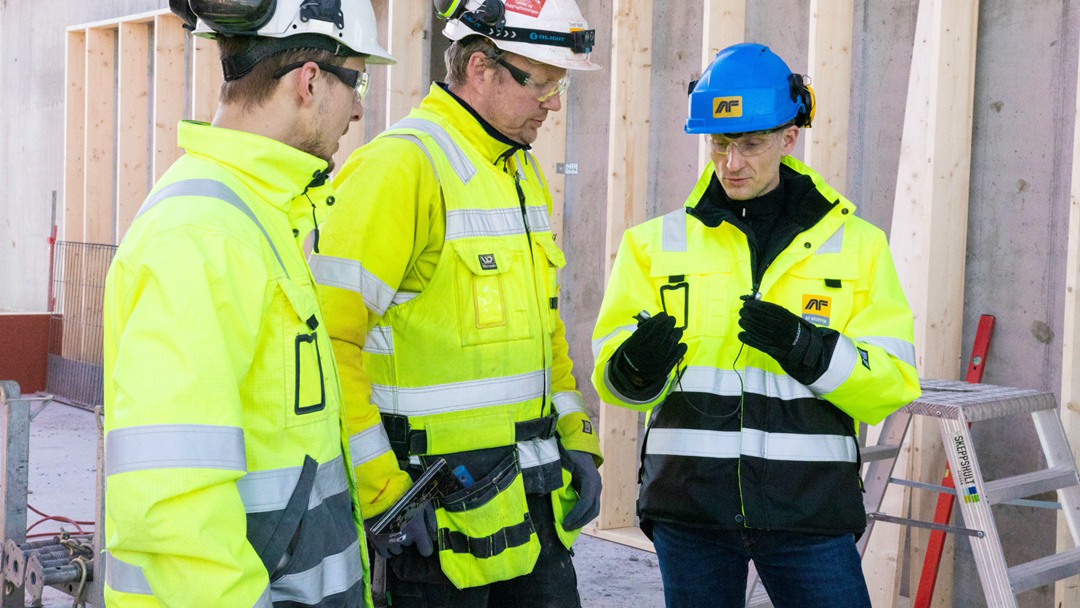
GOAL 8 Decent Work and Economic Growth: Zivid
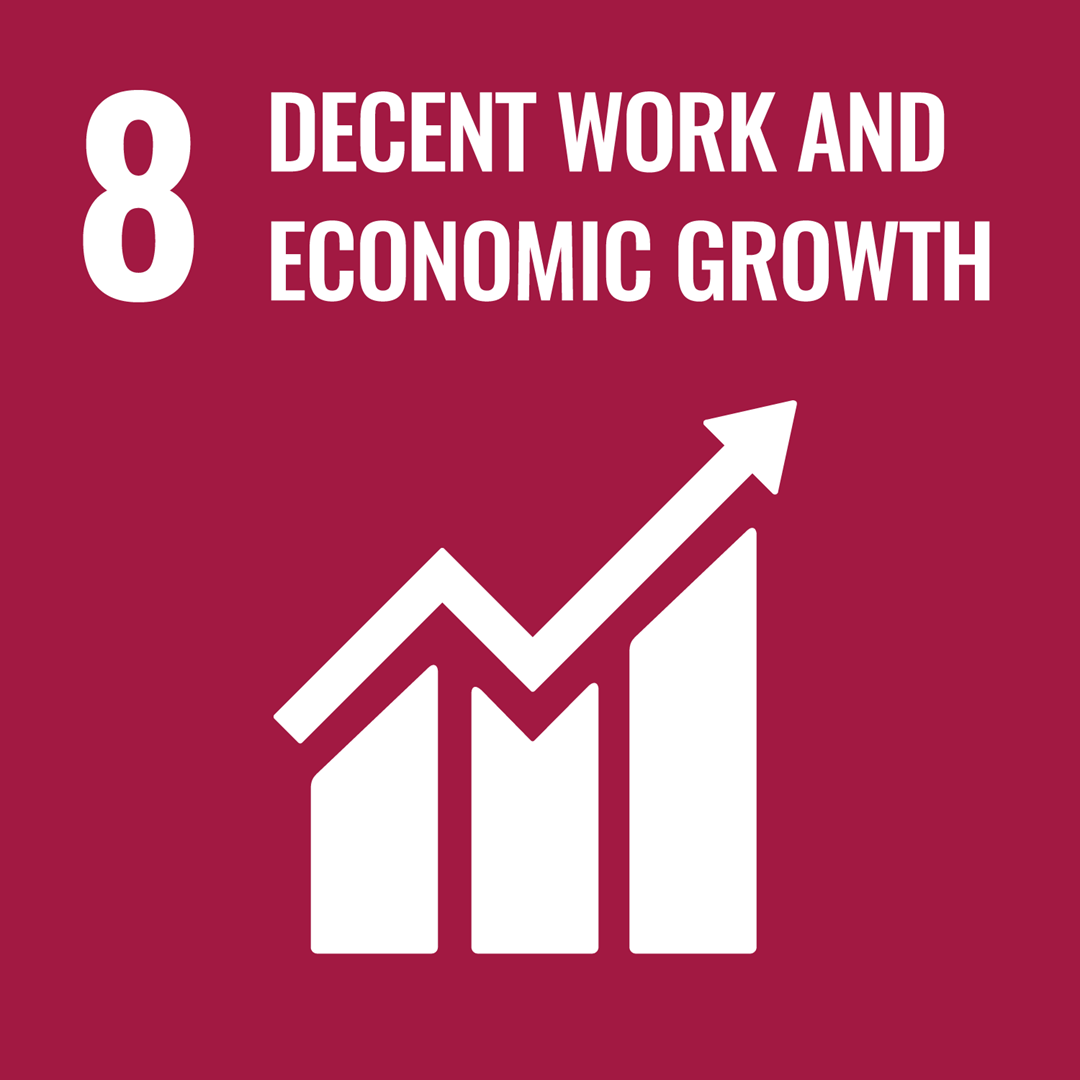
The world's most accurate 3D camera
Zivid AS is a spin-off company from SINTEF that has developed the world's most accurate 3D camera for industrial use. The camera gives robots 'eyesight' and enables them to discern colour, shape and distance. This has made it simpler to automate manual tasks in large parts of the manufacturing industry, including the electronics, furniture, car and food industries.
Impact for clients, users and society
This innovative camera technology developed by Zivid provides great potential for increased productivity and economic growth in several areas of manufacturing. In 2018, Zivid won the Research Council of Norway's innovation award. Since its founding in 2015, Zivid has already established sales offices in China, South Korea, and North America, as well as first-hand distributors in Canada, Japan, and the USA.
Application and scalability
The technology developed by Zivid has wide-ranging potential applications in various sectors, including the health and care services sector. In the Intelli3D project, Zivid and SINTEF are partnering on using the camera technology in 'new' industries and small and medium-sized companies. If this goal is achieved, Zivid will become a key player in the global market and is expected to grow in value over the next seven years to more than EUR 400 million.
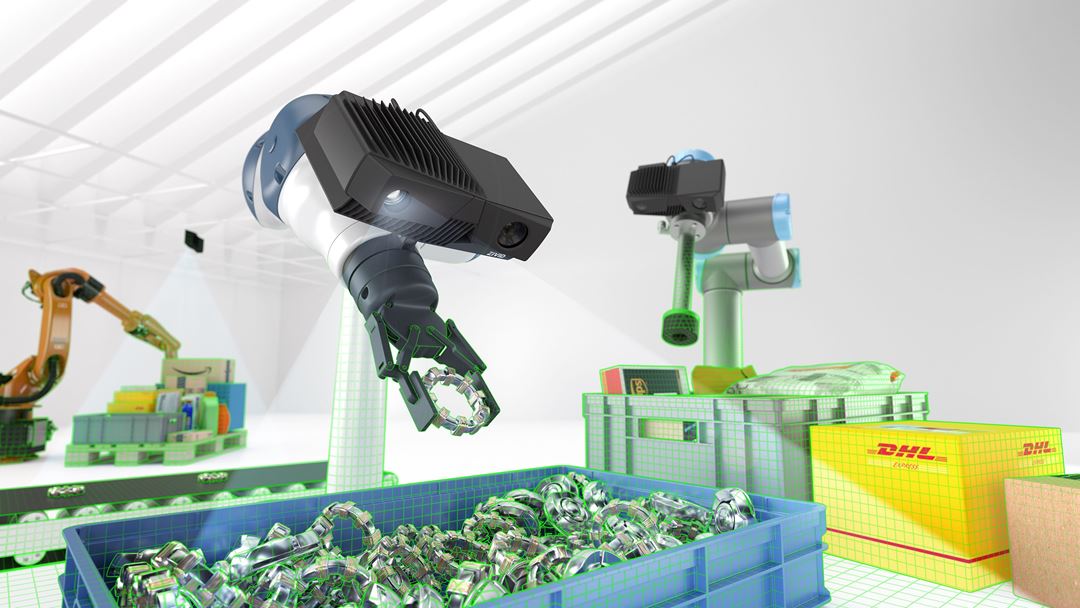
GOAL 14 Life below Water: Ocean Space Acoustics
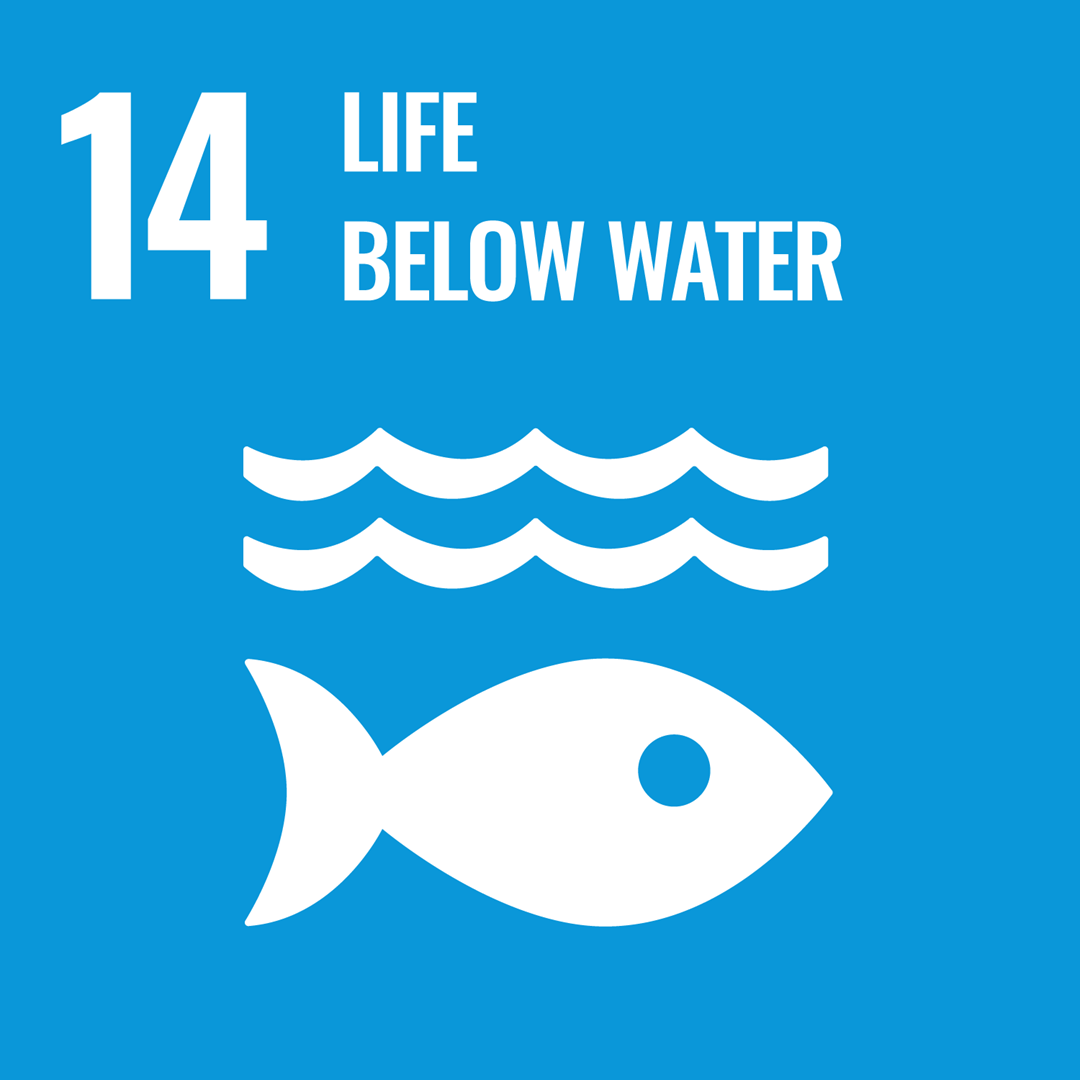
PingMe™ locates hazardous waste
Lost fishing gear are a major challenge to marine life and makes up the majority of large plastic pollution in the oceans. More than 640,000 metric tons of lost and discarded fishing gear end up in the world's oceans every year. The phenomenon of ghost fishing is a threat to living species in the ocean, harms the reputation of the fishing industry and has major economic consequences for fishermen in the form of lost gear and catches. Fishing gear is the most harmful type of marine waste for life below water, since lost equipment can continue to trap fish for periods of up to 30 years.
Impact for clients, users and society
PingMe™ helps fishermen locate and identify lost fishing gear below water, down to 2 000 metres depth. Fishermen can register information about lost and found gear in a cloud solution. In the future, the service may be integrated into public databases. PingMe™ is being commercialised by SINTEF's start up company, Ocean Space Acoustics AS. PingMe will be tested by pilot clients in 2021.
Application and scalability
PingMe™ can also be useful for other applications, including locating offshore anchoring systems, sea cables and pipelines for offshore wind power, aquaculture, and oil operations.

GOAL 14 Life below Water: C-Feed

Copepods for commercial use
In 2016, the company C-Feed opened the world's first commercial copepod production facility. The company is based on more than 15 years of research and development in SINTEF. Today, C-Feed offers eggs and live copepods to marine hatcheries, aquariums, and researchers around the world. Copepods are mainly used for fry feed due to their high levels of fatty acids and proteins in the cell tissue. A container of copepod eggs can produce more than 100 million copepods that can be kept alive for long-term storage in fish tanks.
Impact for clients, users and society
One major problem in fish farming is that a large proportion of the fry die in the first phase of the farming process. Copepods have proved to be highly suitable as feed for fish, including tuna, halibut, lobster and ballan wrasse, and have in many ways revolutionised the farming of these species. The use of copepods as feed thus increases efficiency in industrial fish farming by improving the survival rate, quality, and weight of the fish. Using copepods also improves water quality and the production environment in the facility.
Application and scalability
C-Feed's products can be used as starter feed for a large number of farmed fish species around the world. The company's total market potential is estimated to be around NOK 3.5 billion.
